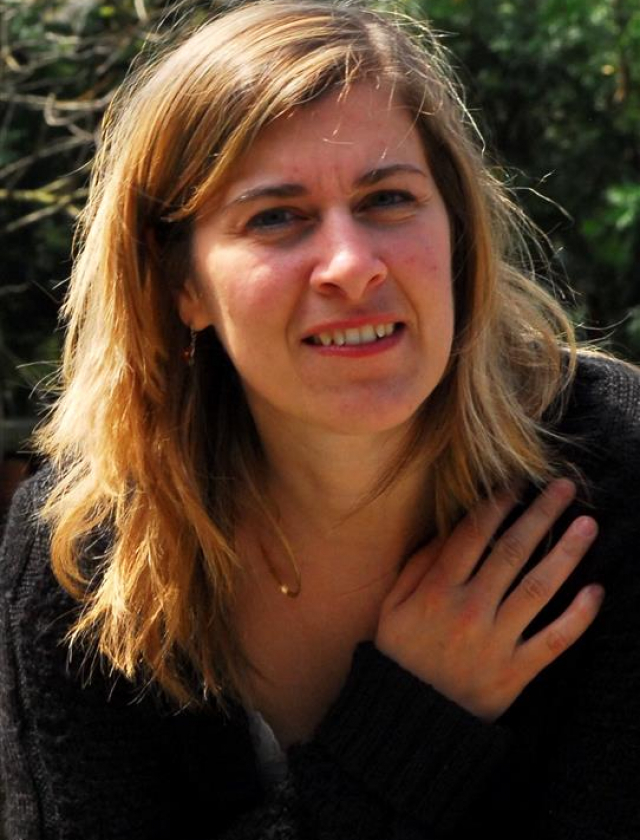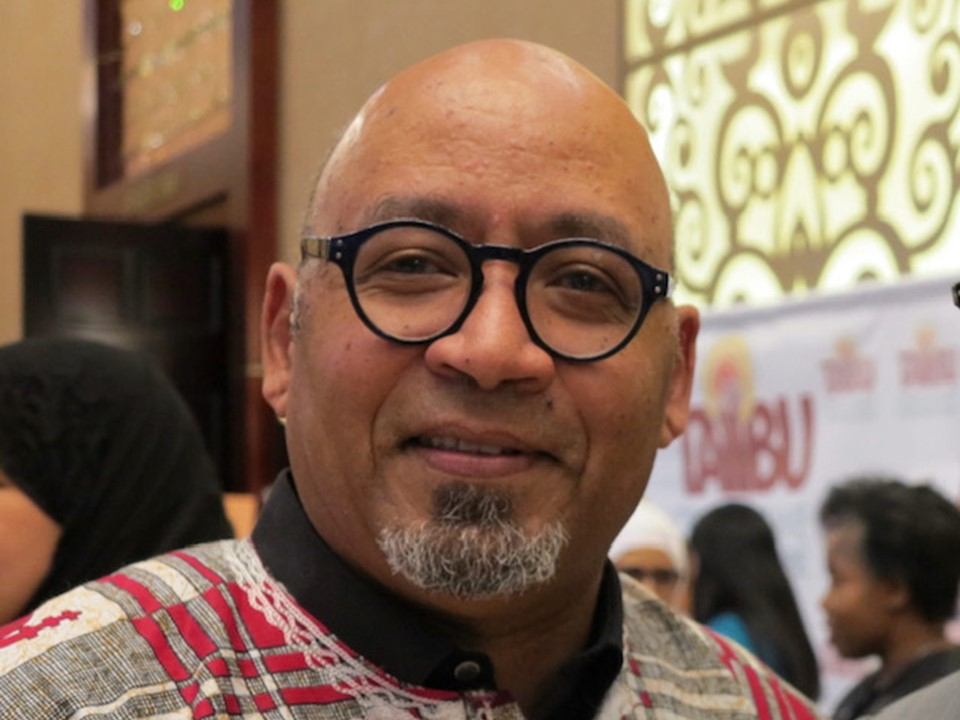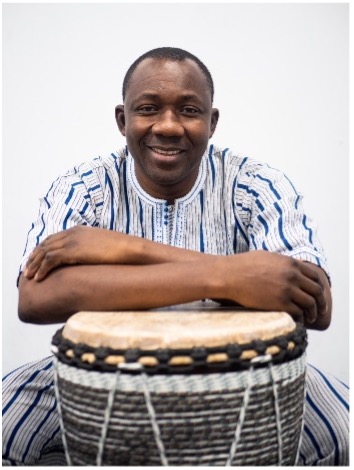
Abstract: The disproportionate burden of the COVID-19 pandemic on racialised and ethno-culturally diverse neighbourhoods, coupled with the Black Lives Matter movement and related global protest against police and state brutality have helped raise awareness of systemic anti-Black racism and related but long-standing health inequities. Across Canada, Black-led advocacy for racial justice and health equity has driven important change including the collection of race-based data, attention to diversity and inclusion in hiring and retention, recognition and celebration of Black excellence and joy, and the development of culturally relevant, anti-oppressive, trauma-informed care. There have been important gains in recent years, but much work remains to be done to end anti-Black racism and promote the health, wellbeing and livelihoods of Black people in Canada. TAIBU Community Health Centre is at the forefront of this important work.
Please join TAIBU’s CEO, Mr Liben Gebremikael and Professor Suzanne Sicchia for a morning of dialogue and reflection on racial injustice and Black health, the work TAIBU is doing to improve and protect the health and wellbeing of Black populations in Canada, and how the University of Toronto Scarborough and TAIBU are collaborating to influence systems change through research knowledge mobilization.
Suzanne Sichhia: Award winning Associate Professor Teaching Stream in the Department of Health & Society, and the Dalla Lana School of Public Health, University of Toronto, Professor Sicchia also serves as the Associate Dean Undergraduate Programs & Curriculum, for the University of Toronto Scarborough Campus. She has a PhD in Medical Science, a MHSc in health promotion, and a MSc in social theory and health from the former Department of Public Health Sciences, Faculty of Medicine, University of Toronto. Before joining UTSC, she worked as a Research Associate in the ‘Global Health’ and ‘Violence and Health’ units of the former Centre for Research in Women’s Health, WHO/PAHO Collaborative Centre in Women’s Health. During this time, she worked extensively on the joint CIHR/NIH Globalization Gender & Health: Research-Policy initiative. Project partners included the NIH Office for Research in Women’s Health, Fogarty International Centre, and the Institute for Aboriginal Peoples' Health and the Institute for Gender & Health, at the Canadian Institutes of Health Research. More recently she has served as an external reviewer on global health governance-related grants for the CIHR, SSHRC, and IDRC. Suzanne also founded the UTSC International Health Film Series & Expo, and the UTSC Critical Book Club. Her interests include critical public health, global health governance, community-based participatory research, social theory and health, structural violence, and critical pedagogies.

Liben Gebremikael: Chief Executive Officer of TAIBU Community Health Centre. Born in Ethiopia and now a resident of Toronto, Gebremikael has more than 25 years of experience in primary health care, social services, mental health, and community capacity building and development. He has worked as a social worker, child and family therapist, project coordinator, and therapeutic group facilitator with various primary care and non-profit organizations serving racialized and marginalized populations in Canada and the United Kingdom. He holds an MA in Migration, Mental Health & Social Care from the University of Kent (UK), a Masters Certificate in Healthcare Management from the Schulich School of Business at York University. In June 2012, Gebremikael received the prestigious Emerging Leaders Award from The Association of Ontario Health Centres at its annual conference in Toronto. In November 2014, he was awarded the Development Award by the Planet Africa Group, and now serves as the Chair of the Alliance of Healthier Communities.
Located in the Malvern neighbourhood of Scarborough, TAIBU Community Health Centre (CHC) provides primary health care and related services for the Greater Toronto Area’s Black communities. TAIBU CHC recognizes the health impacts of the systemic oppression of Black People and consequently strives to deliver health services through intersectional, equity based and culturally affirming practices that promote holistic wellness, health education, and prevention. Since TAIBU CHC’s inception in 2008, Gebremikael has led a dedicated, passionate and professional staff to advance the organization’s mandate and mission. Today, TAIBU CHC has more than 8,000 registered clients who receive a wide range of culturally appropriate health and social programs and services. The Centre is widely regarded for its innovative Africentric approach.

Amadou Kienou: Le maître du tambour Amadou Kienou est originaire de Ouagadougou, au Burkina Faso, en Afrique de l'Ouest, qui faisait autrefois partie du vaste ancien empire mandingue. Descendant du peuple Dafin, Amadou a été initié en tant que djeli ou griot (historien oral), membre d’une longue lignée de griots dont le rôle est de préserver et de transmettre l’histoire, la culture et les valeurs de leur peuple. De nos jours, apportant le traditionnel au contemporain, Amadou ravit le public international avec son expression polyrythmique unique d'émotions et de souvenirs.
Le djembé est l’instrument principal d’Amadou. Comme il le décrit, “le djembé est plus qu'un instrument de musique; c'est une extension du musicien à travers laquelle il exprime sa vie, ses émotions.” La maîtrise du djembé exige toute une vie de discipline et de dévouement, ainsi que les conseils d’un maître de djembé, à condition, dans le cas d’Amadou, principalement par son père, le regretté Baba Kienou. Amadou joue plusieurs autres instruments traditionnels africains - les dunduns, le n'goni et le tama, sans oublier la guitare et la batterie occidentales.
En tant que djeli, musicien-compositeur, danseur, chorégraphe et instructeur, Amadou Kienou a été actif dans toute l'Amérique du Nord, l'Afrique, l'Europe, l'Asie, l'Inde et les Caraïbes. Il a joué et enregistré avec de nombreux grands artistes, dont Miriam Makeba, Manu Dibango, Angélique Kidjo, Salif Keita, Youssou N'dour et Kassav, et avec ses propres ensembles Fotéban et Djeli Sira (The Griot’s Path). En reconnaissance de son talent artistique, il a reçu de nombreux prix, dont celui du meilleur artiste de la scène africaine au Canada 2019, du meilleur artiste masculin de Radio Kilimandjaro en 2018 et de l'artiste masculin de l'année 2016, ambassadeur culturel du Burkina Faso au Canada. Amadou Kienou a été décoré chevalier de l’ordre du mérite des arts des, lettres et de la communication le 19 juin 2018 à Ottawa Canada.
Formellement reconnu comme un griot/maître du tambour dans son pays natal (et le seul au Canada), Amadou réside à Toronto depuis 2008, se produisant dans le monde entier et enseignant régulièrement des ateliers de danse et de batterie dans des écoles universitaires et lors de festivals à travers le pays. La maîtrise d’Amadou en anglais, en français, en allemand et dans la langue universelle du tambour lui permet d’atteindre un large public grâce à ses enseignements.
Master drummer Amadou Kienou hails from Ouagadougou, Burkina Faso, West Africa, once part of the vast ancient Mandingo Empire. A descendant of the Dafin people, Amadou was initiated as a djeli or griot (an oral historian), one of a long line of griots whose role is to preserve and transmit their people’s history, culture, and values. Nowadays, bringing the traditional to the contemporary, Amadou delights international audiences with his unique polyrhythmic expression of emotions and memories.
The djembe is Amadou’s principal instrument. As he describes it, “the djembe is more than a musical instrument; it is an extension of the musician through which he expresses his life, his emotions.” Mastery of the djembe requires a lifetime of discipline and dedication, and the guidance of a djembe master, provided, in Amadou’s case, primarily by his father, the late revered Baba Kienou. Amadou plays several other traditional African instruments – the dunduns, the n’goni, and the tama, not to mention the Western guitar and drum set.
As a djeli, musician-composer, dancer, choreographer, and instructor, Amadou Kienou has been active throughout North America, Africa, Europe, Asia, India, and the Caribbean. He has performed and recorded with many great artists, including Miriam Makeba, Manu Dibango, Angélique Kidjo, Sali, Youssou N'dour, and Kassav, and with his own ensembles Fotéban and Djeli Sira (The Griot’s Path). In recognition of his artistry, he has received numerous awards, including Best African Performing Artist in Canada 2019, Radio Kilimandjaro’s Best Male Performer of 2018 and Male Artist of the Year 2016, Cultural Ambassador of Burkina Faso in Canada. On June 19th, 2018, Amadou Kienou was awarded the Order of Merit of Arts, Letters and Communication, in Ottawa, Canada.
Formally recognized as a Griot/Master Drummer in his homeland (and the only one in Canada), Amadou has resided in Toronto since 2008, performing around the globe and regularly teaching dance and drumming workshops in schools, universities, and at festivals throughout the nation. Amadou’s fluency in English, French, German and the universal language of the drum allows him to reach a large audience with his teachings.
Great Explorations, is a series of academic discussions we hope will inspire our communities. Our special thanks to our engaged, critical thinkers who attend our speaker series. The dialogues that came out of these talks, both in-person and online via Zoom, are integral to our campus community and Scarborough communities at large. We welcome your input for future topics, as well as a review of previous recorded sessions available on YouTube.